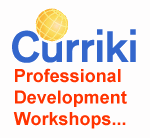According to Wikipedia the textbook market is a “broken” market.
“The textbook market does not operate in exactly the same manner as most consumer markets. First, the end consumers (students) do not select the product, and the product is not purchased by faculty or professors. Therefore, price is removed from the purchasing decision, giving the producer (publishers) disproportionate market power to set prices high.”
In a recent article, Tom Segal, analyst at Rethink Education points out that:
* The modern textbook style dates from the 1960s, congruent with the surge of school enrollment of the Baby Boomers.
* Today’s textbooks are not just for content, but are also guides to teaching strategies and projects, roadmaps for pedagogy.
* Digital augmentation has been taking place since CD-ROM inserts in textbooks began in the 1990s.
* Now curricular content is becoming rapidly unbundled and disaggregated in response to all the new developments in technology and resulting market pressures.
Tom says:
“Some of the big names in online content generation include sites like BetterLesson, TeachersPayTeachers, Curriki, and MasteryConnect — communities built around teachers where lesson plans are aggregated, ranked, swapped, and purchased, creating a network for content where the most effective lessons will organically rise to the top…
“The success of these networks will soon put the textbook market to the test, as …we can now take the most effective lesson plans and literally recreate them in classrooms across the nation…How can we continue to justify the costs of textbooks in an era when “free” is the name of the game, when a simple Google search yields a gaggle of information previously reserved for an elite, doctoral few? … The answer, of course: we cannot, and we will not.”
 Certainly one advance is the free e-textbook, with many organizations developing these, including the CK-12 Foundation, Free High School Science Texts, MIT Courseware, the Open Content Alliance and Wikibooks. These are excellent initiatives, and we host some of their content on Curriki, but these initiatives don’t address all the issues.
Certainly one advance is the free e-textbook, with many organizations developing these, including the CK-12 Foundation, Free High School Science Texts, MIT Courseware, the Open Content Alliance and Wikibooks. These are excellent initiatives, and we host some of their content on Curriki, but these initiatives don’t address all the issues.
Content is becoming increasingly digital, increasingly dispersed, and more and more it is accessed via mobile clients. Online learning and digital learning allow for greater personalization. Students are generating and sharing in the classroom more content developed on their own, enabled by the digital, web and mobile revolutions and the wealth of available tools on the Web for content creation and manipulation.
Matt Greenfield, a managing director at Rethink Education asks in another blog “Is it Time to Stop Using the Word ‘Textbook’?”
“I cannot say which of today’s educational products and practices will contribute to our future and which are evolutionary dead ends, but I can say which ones make me uncomfortable. I am uncomfortable with students renting paper textbooks or licensing digital textbooks for a limited period. …Charging $162 for a textbook may or may not be morally acceptable, but I am pretty confident that it will soon cease to be commercially sustainable.
“… A single textbook chosen by the professor or the school board is unlikely to be the optimal or the complete solution for all of the different students in a class. And if course content is to be a life-long possession, it must be extensible and must grow with its user.”
Curriki is pleased to be a leader in this grand global endeavor to expand beyond the boundaries of the textbook. The purpose is to modernize education by incorporating the benefits of technology that range from digital media to mobile devices to social media and to Web and cloud-based provision of content and resources. These technologies are enabling mass customization of education to better fit the needs of each student and each learner, whether the context is K-12, the university, in business or for life-long learning. Thank you for your participation and contributions to this endeavor, whether it is to Curriki’s free and open curricular resources or through your financial support.
The Rethink Education blog is located at http://rteducation.com/blog/









Everything you have penned in Do Textbooks Have a Future? | Curriki’s Blog is simply not
just great but actually version of important. I know many people don’t really check out these false claims. But when you are like me then have was mandated to do with losing weight or dependency or all the things in fact can bear in mind I have a appreciate what I read mainly because it is really sizzling hot to grow in knowledge with out actually doing a things. Nevertheless this is the reason I enjoy finding out different peoples points of views and experience.
Greetings! Very useful advice within this post!
It’s the little changes that will make the most important changes.
Thanks for sharing!